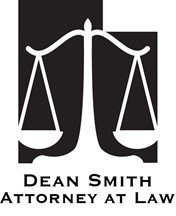The eviction process in Utah is governed by state law, and a landlord that intends to evict a tenant must carefully comply with the requirements set forth in those laws. The following article is meant to provide a summary of the process, and law, of evictions in Utah. It is not comprehensive and is not intended to provide specific legal advice. Please consult with a Utah eviction attorney to determine what action is appropriate for your particular circumstances.
First, under what circumstances can a landlord evict a tenant?
Here are a few of the most common reasons for eviction:
The tenant continues to occupy the premises after the lease term has ended. In all but one situation the landlord must give notice to tenant in order to terminate the lease (if the expiration of the term is specified in the lease, and the tenant remains after the term expires, no notice is required by landlord). For a month to month or other periodic lease, the landlord must give tenant a 15-day notice. For an at-will tenant the landlord must give a 5-day notice.
The tenant fails to pay the rent on time. In this case a landlord must notify the tenant that it must pay the rent or leave the premises within 3 days (if a longer period is provided in the lease the longer period will apply). If the tenant fails to comply the landlord can seek to evict.
The tenant assigns or sublets the premises in breach of the lease agreement. Landlord must give tenant notice to quit within 3 days.
The tenant sets up or carries on any unlawful business at the premises. Landlord must give tenant notice to quit within 3 days.
The tenant allows or maintains any nuisance at the premises. Landlord must give tenant notice to quit within 3 days.
The tenant commits any criminal act at the premises. Landlord must give tenant notice to quit within 3 days.
The tenant breaches any condition or covenant of the lease agreement. In this case the landlord must notify the tenant that it must cure the breach or leave the premises within 3 days (if a longer period is provided in the lease the longer period will apply). If the tenant fails to comply the landlord can seek to evict.
If the landlord fails to provide any applicable notice as provided above it cannot file suit to evict the tenant. Furthermore, the landlord must serve the notice in the specific mode and manner required by the statutes. Failure to do so will likely result in the notice being considered ineffective. In that case notice would need to be re-served.
Second, what is the process a landlord must follow to evict a tenant?
Under Utah law, after the landlord has given applicable notice and brought the tenant’s lease rights to an end, it must file a summons and complaint with the court setting forth the facts on which it seeks to recover, and the relief being sought, which may include damages and unpaid rent. The tenant must also be served with the summons and complaint. The tenant will typically have three business days in which to file an answer with the court. If the tenant does file an answer the next step will likely be a hearing before the judge, who will decide how the matter should be resolved. The tenant must include any applicable defenses and counterclaims in its answer.
If the tenant does not file an answer to the summons and complaint the landlord will submit a default judgment against the tenant for the judge’s signature. Once signed, this is given to the constable who will notify the tenant of the date and time they must be out of the premises, at which time the locks will be changed. If needed, the constable will physically remove the tenants at that time. Personal property remaining in the premises can be inventoried and stored by the landlord. Tenant can recover its personal property by paying for reasonable moving and storage costs incurred by landlord. If the tenant does not recover the property within 30 days the landlord can dispose of it as needed to cover its expenses.
To reiterate, the above article is a summary only and does not address many of the issues related to evictions in Utah (for instance, the provision in the law allowing landlords to obtain judgment for reasonable attorney fees, and in some cases, treble damages). Please contact Utah eviction attorney Dean Smith to discuss your particular situation.
